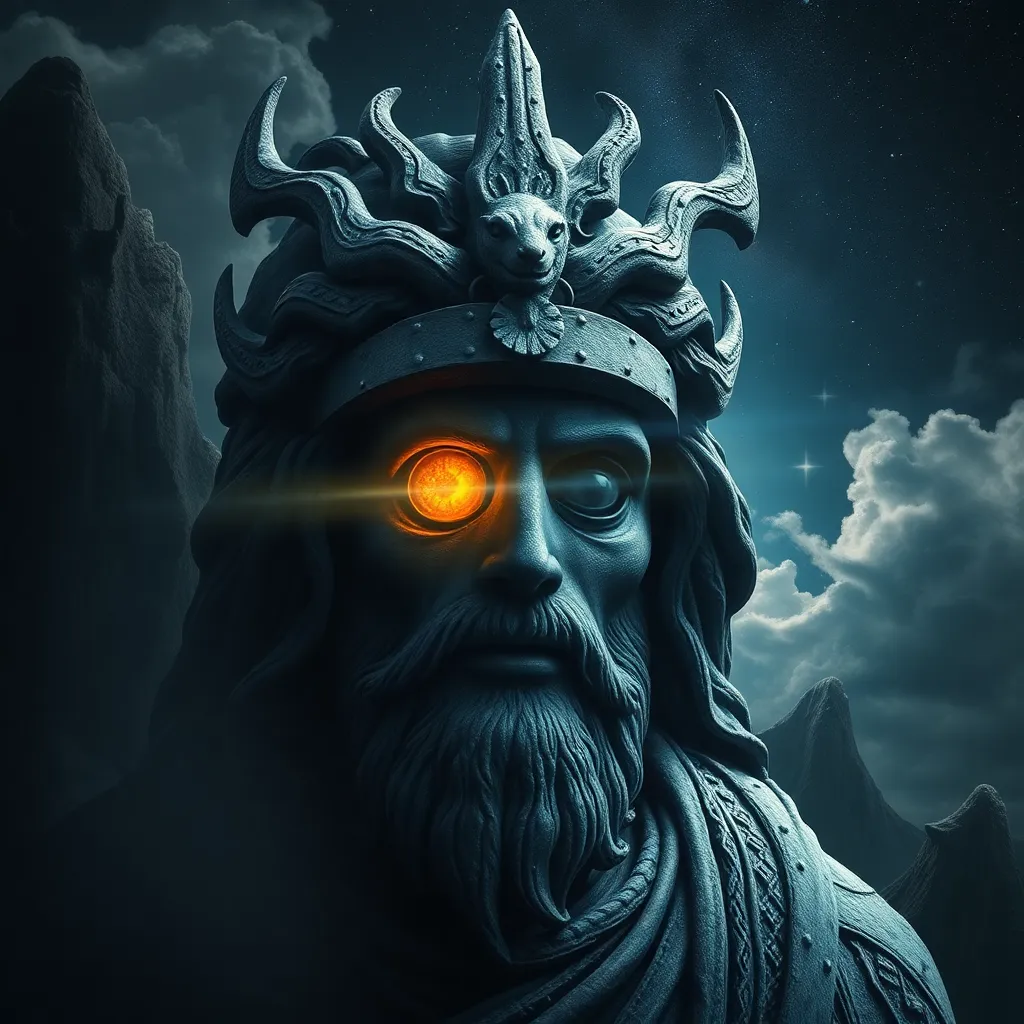The Cyclops as a Metaphor for Human Limitations
I. Introduction
The Cyclops, a one-eyed giant from Greek mythology, is a fascinating figure that has captured the imagination of many throughout history. Known primarily for their brute strength and fierce nature, Cyclopes also symbolize deeper, more complex human traits and limitations.
This article explores the metaphorical interpretation of the Cyclops, examining how this mythological creature serves as a representation of human limitations in various aspects of life. By delving into these themes, we can gain a better understanding of ourselves and the challenges we face.
The significance of exploring human limitations through the lens of the Cyclops lies in its ability to encourage introspection and growth. As we reflect on our own “Cyclopean” traits, we can strive for a more holistic understanding of ourselves and the world around us.
II. Historical Context of the Cyclops Myth
The origins of the Cyclops can be traced back to ancient Greek literature, with references found in works like Hesiod’s “Theogony” and Homer’s “The Odyssey.” These stories depict Cyclopes as formidable beings, often associated with chaos and destruction.
In “The Odyssey,” the encounter between Odysseus and the Cyclops Polyphemus serves as a pivotal moment in the narrative. Odysseus’ cunning and resourcefulness stand in stark contrast to Polyphemus’ brute strength, highlighting the tension between intellect and physical power.
The imagery of the Cyclops has evolved over time, appearing in various cultures and interpretations. From ancient pottery to modern literature and film, the Cyclops continues to symbolize the struggle between human limitations and aspirations.
III. Physical Limitations: The One-Eyed Giant
The most overt physical limitation of the Cyclops is their singular vision. This characteristic can be interpreted as a metaphor for limited perspective and focus. Just as the Cyclops sees the world through a single eye, humans often find themselves restricted by their own narrow viewpoints.
- Symbolism of Limited Perspective: The one-eyed vision of the Cyclops represents how individuals may become fixated on a single idea or belief, ignoring the broader context and perspectives that exist around them.
- Implications for Human Experience: This limitation can lead to misunderstandings and conflicts, as individuals may struggle to see the full picture of complex situations.
IV. Intellectual Limitations: The Lack of Insight
While the Cyclops is often portrayed as a being of immense strength, they are also depicted as lacking in intelligence. This juxtaposition raises important questions about the relationship between physical prowess and intellectual insight.
- Brute Strength vs. Cunning Intellect: In “The Odyssey,” Odysseus outsmarts Polyphemus, illustrating how intelligence can triumph over sheer strength. This dynamic serves as a reminder that intellectual limitations can hinder personal growth and understanding.
- Ignorance as a Barrier: The Cyclops’ ignorance and inability to see beyond their immediate desires can be likened to human cognitive biases, such as confirmation bias, where individuals seek out information that reinforces their existing beliefs.
V. Emotional Limitations: Isolation and Alienation
The solitary existence of the Cyclops further emphasizes their emotional limitations. Living alone on an isolated island, the Cyclops embodies feelings of isolation and alienation that resonate deeply with the human experience.
- Impact of Emotional Detachment: The emotional detachment exhibited by the Cyclops can lead to strained relationships and a lack of empathy, highlighting the importance of connection and understanding in human interactions.
- Metaphor of Loneliness: The Cyclops serves as a poignant reminder of the loneliness that can arise from emotional isolation, urging individuals to seek out meaningful connections with others.
VI. Societal Limitations: The Consequences of Monoculture
Beyond individual limitations, the Cyclops can also be viewed as a symbol of societal conformity. In a world that often values uniformity over diversity, the Cyclops represents the dangers of a one-dimensional worldview.
- Symbol of Societal Conformity: The Cyclops’ singularity reflects the pressures of societal norms that encourage conformity and discourage individuality.
- Critique of Monoculture: In modern society, the risks associated with losing diversity and pluralism are evident, as monoculture can lead to stagnation and a lack of innovation.
VII. Overcoming Limitations: Lessons from the Myth
Despite the limitations embodied by the Cyclops, there are valuable lessons to be learned about overcoming these challenges. By embracing complexity and seeking to broaden our perspectives, we can transcend our limitations.
- Strategies for Broadening Perspective: Engaging with diverse viewpoints, challenging assumptions, and seeking out new experiences can help individuals expand their horizons.
- Importance of Empathy: Building connections with others and fostering empathy can combat emotional isolation and enrich our understanding of the human experience.
- Embracing Complexity: Acknowledging the multifaceted nature of life and society can lead to personal growth and a more nuanced understanding of the world.
VIII. Conclusion
In conclusion, the Cyclops serves as a powerful metaphor for human limitations, encompassing physical, intellectual, emotional, and societal dimensions. By recognizing these limitations, we can work towards overcoming them and fostering personal and collective growth.
Ultimately, the story of the Cyclops encourages us to reflect on our own “Cyclopean” traits and strive for a more holistic understanding of ourselves and our relationships with others. As we navigate the complexities of life, let us embrace the lessons of the Cyclops and seek to broaden our perspectives, cultivate empathy, and celebrate diversity.




